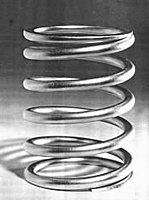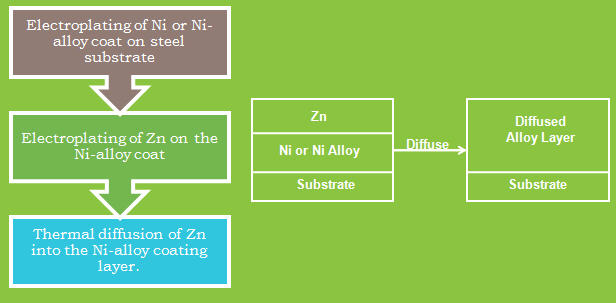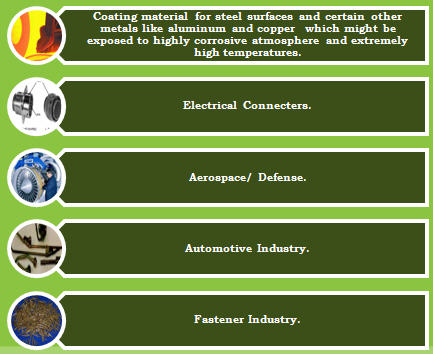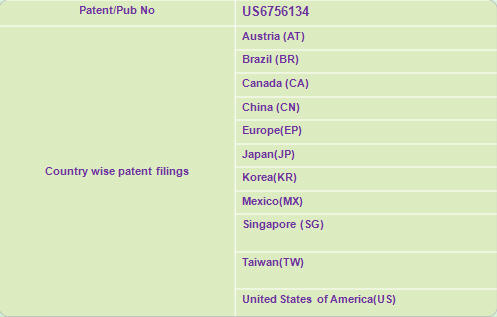Difference between revisions of "Environment Friendly Technology to Replace Cadmium Coatings"
From DolceraWiki
(→The Value Proposition) |
|||
| (30 intermediate revisions by 2 users not shown) | |||
| Line 1: | Line 1: | ||
| − | == | + | == Agenda == |
| − | + | * '''To introduce and explain the benefits of the patented green technology developed by Pratt & Whitney.''' | |
| − | + | * '''To find out interest of the prospects in acquiring the technology on a licensed basis from Pratt & Whitney.''' | |
| − | == | + | == About Dolcera == |
| + | [[Image:dolcera logo image.jpg|right]] | ||
| + | * Dolcera is an international services firm specializing in intellectual property and market research services. Our clientele includes several fortune 500 companies and global 100 companies. For more information please visit: [http://dolcera.com/ www.dolcera.com] | ||
| − | + | * We at Dolcera are partnering with Pratt & whitney to out-license their green technology to replace Ni-Cd coatings used for finishing purposes. | |
| + | == About Pratt & Whitney == | ||
| + | [[Image:pratt logo.jpg|right]] | ||
| + | * Pratt & Whitney is one of the largest aircraft engine manufacturers in the world with a sales revenue of more than $12 Bn and spends more than $250 Mn in research & development. | ||
| − | * | + | * Cutting edge R&D with over a 1000 patents. |
| − | + | * Has always been at the forefront of technologies for turbine, rocket, reciprocating engines, power systems, etc. | |
| − | === | + | == Issue at Hand == |
| − | + | ||
| − | + | ||
| − | + | ||
| − | + | ||
| − | + | ||
| − | + | ||
| − | + | ||
| − | + | ||
| − | + | ||
| − | + | ||
| − | + | ||
| − | + | ||
| − | + | ||
| − | + | ||
| − | + | ||
| − | + | ||
| − | + | ||
| − | + | ||
| − | + | ||
| − | + | ||
| − | + | ||
| − | + | ||
| − | + | ||
| − | + | ||
| − | + | ||
| − | + | ||
| − | + | ||
| − | + | ||
| − | + | ||
| − | + | ||
| − | + | ||
* It is very difficult to ensure complete protection of steel from corrosive environment at temperatures as high as 900°F. | * It is very difficult to ensure complete protection of steel from corrosive environment at temperatures as high as 900°F. | ||
| + | * Traditionally used Ni-Cd Coatings involve use of Hexavalent chromium, cadmium and cyanides which are very toxic. Thus, making it difficult to ensure safety of the work environment. | ||
| − | + | == Cadmium Qualms == | |
| + | [[Image:cadmium plating.jpg|right]] | ||
| + | * Cadmium is a toxin for both animals and plants. | ||
| − | + | * Cadmium is known to sublimate in a hard vacuum environment .The sublimation products, which are conductive, can redeposit resulting in short circuits. The sublimation products may also interfere with sensitive optics. | |
| − | + | * Cyanide solutions used in Cadmium plating are highly Toxic. | |
| − | * | + | * [http://en.wikipedia.org/wiki/Restriction_of_Hazardous_Substances_Directive RoHS] disallows use of cadmium in electrical equipment. |
| − | * | + | * Cadmium is subject to the spontaneous growth of Cadmium whiskers. Cadmium whiskers (like tin whiskers) grow spontaneously and are capable of causing electrical failures ranging from parametric deviations to sustained plasma arcing that can result in catastrophic short circuits.[http://www.finishing.com/100/89.shtml Source] |
| + | <BR> | ||
| + | <BR> | ||
| − | + | == Environment Friendly solution == | |
| − | + | * An environment-friendly alternative to Ni-Cd coatings. | |
| + | * Eliminates materials of concern from the product such as cadmium, hexavalent chromium and cyanides from the plating process. | ||
| + | * Offers equivalent or superior protection to the baseline Ni-Cd coatings. | ||
| − | + | == The Unique Process == | |
| + | [[Image:Plating Process.jpg|thumb|700px|center|Coating Process]] | ||
| − | + | == The Value Proposition == | |
| − | * | + | * Not just an idea but a patented & experimentally proven technology. Pratt&Whitney also has a working prototype of the technology. |
| − | * | + | * Not very capital intensive, as it utilizes already established processes used for electroplating. |
| − | * | + | * A green technology eliminating the use of hazardous cadmium in the coating process. |
| − | == Application | + | == Area of Application == |
| − | + | [[Image:Area of Application.jpg|thumb|700px|center|Area of Aplication]] | |
| − | + | ||
| − | + | ||
| − | + | ||
| − | + | ||
| − | [[Image: | + | |
| − | + | ||
| − | + | ||
| − | + | ||
| − | + | ||
| − | + | ||
| − | + | ||
| − | + | ||
| − | + | ||
| − | + | ||
| − | + | ||
| − | + | ||
| − | + | ||
| − | + | ||
| − | + | ||
| − | + | ||
| − | + | ||
| − | + | ||
| − | + | ||
| − | + | ||
| − | + | ||
| − | + | ||
| − | + | ||
| − | + | ||
| − | == | + | == Legal Status == |
| + | [[Image:countrywise filing.jpg|thumb|700px|center|Geographic Spread]] | ||
| − | [[ | + | [[Media:Original patent document.pdf|Click here to download the original patent document]] |
| − | + | ||
Latest revision as of 06:57, 8 October 2009
Contents
Agenda
- To introduce and explain the benefits of the patented green technology developed by Pratt & Whitney.
- To find out interest of the prospects in acquiring the technology on a licensed basis from Pratt & Whitney.
About Dolcera
- Dolcera is an international services firm specializing in intellectual property and market research services. Our clientele includes several fortune 500 companies and global 100 companies. For more information please visit: www.dolcera.com
- We at Dolcera are partnering with Pratt & whitney to out-license their green technology to replace Ni-Cd coatings used for finishing purposes.
About Pratt & Whitney
- Pratt & Whitney is one of the largest aircraft engine manufacturers in the world with a sales revenue of more than $12 Bn and spends more than $250 Mn in research & development.
- Cutting edge R&D with over a 1000 patents.
- Has always been at the forefront of technologies for turbine, rocket, reciprocating engines, power systems, etc.
Issue at Hand
- It is very difficult to ensure complete protection of steel from corrosive environment at temperatures as high as 900°F.
- Traditionally used Ni-Cd Coatings involve use of Hexavalent chromium, cadmium and cyanides which are very toxic. Thus, making it difficult to ensure safety of the work environment.
Cadmium Qualms
- Cadmium is a toxin for both animals and plants.
- Cadmium is known to sublimate in a hard vacuum environment .The sublimation products, which are conductive, can redeposit resulting in short circuits. The sublimation products may also interfere with sensitive optics.
- Cyanide solutions used in Cadmium plating are highly Toxic.
- RoHS disallows use of cadmium in electrical equipment.
- Cadmium is subject to the spontaneous growth of Cadmium whiskers. Cadmium whiskers (like tin whiskers) grow spontaneously and are capable of causing electrical failures ranging from parametric deviations to sustained plasma arcing that can result in catastrophic short circuits.Source
Environment Friendly solution
- An environment-friendly alternative to Ni-Cd coatings.
- Eliminates materials of concern from the product such as cadmium, hexavalent chromium and cyanides from the plating process.
- Offers equivalent or superior protection to the baseline Ni-Cd coatings.
The Unique Process
The Value Proposition
- Not just an idea but a patented & experimentally proven technology. Pratt&Whitney also has a working prototype of the technology.
- Not very capital intensive, as it utilizes already established processes used for electroplating.
- A green technology eliminating the use of hazardous cadmium in the coating process.





